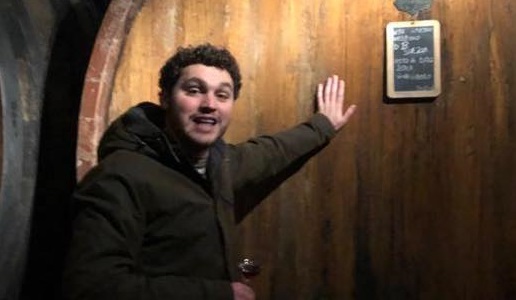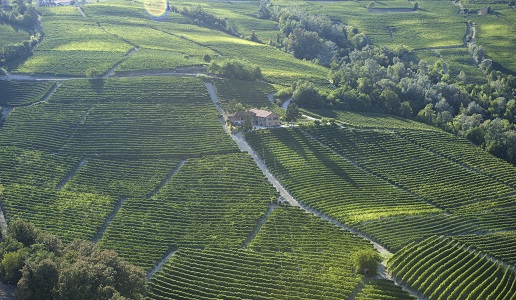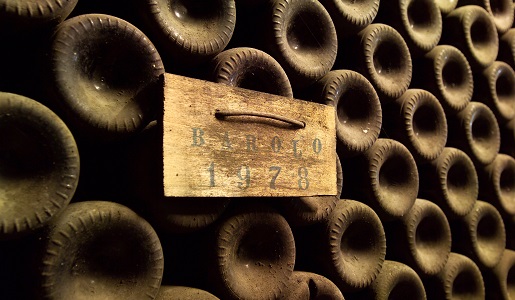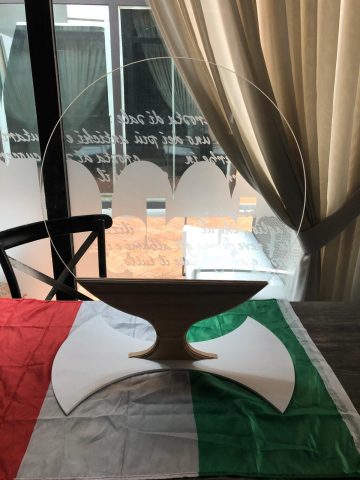Borgogno, where the past is new (the interview)

The Farinetti family acquired the historic Borgogno estate in 2008 and we talk about it here with Andrea Farinetti.
It is not easy to remain neutral about to the Borgogno winery, in the heart of the Langhe, ever since it was acquired - in 2008 – by the entrepreneurial genius Oscar Farinetti.
Initially, no few people had their doubts over Farinetti’s true intentions regarding this estate. Many were convinced that he would ruin the Barolo that for decades was produced by this estate that became an icon in the Langhe through its use of long maceration and maturing in large barrels, which produced a Barolo that was not that meaty and initially a bit hard. But the fears were unfounded and, in fact, for a few years now tradition has returned to Borgogno with the use of cement vats for the fermentation of certain reds that for some time had been done in stainless steel.

DoctorWine: Andrea, tell us something about yourself.
Andrea Farinetti: I am 29 years old and have a degree from the School of Enology in Alba. My family acquired Borgogno in 2008 and in 2010 I began working at the estate, getting involved in both production and sales.
DW: What are your professional guidelines for the future?
AF: I think the most important is to increasingly work with respect for the environment and future generations in order to leave things better than when we found them.
DW: What is your most important challenge in the immediate future?
AF: I would say Derthona, which we only began to produce with the 2015 harvest and that is already having great success, so much so that from the 2019 harvest we will also produce a cru.
DW: Barolo has a well-deserved reputation as an important wine. Do you think this could represent a hindrance at a time when the new generations are seeking wines that are easier to approach?
AF: While this may be true, it doesn’t bother me. Barolo has changed a lot over the past ten years and it is no longer a difficult wine that needs to age long before you can drink it. Oddly enough, using old methods and sticking to authentic traditions has made Barolo easier to approach, while maintaining its propensity to age long. I believe that there are curious young people who are eager to learn while, at the same time, we have to express our land and our wines. We have to prove that Barolo is not an unapproachable wine for a select few but a great wine the reputation and quality of which must be maintained, given that it is a great asset for the Langhe.
 DW: Do you think that the desire to create an “easy” approach to Barolo is the best lesson learned from the innovators of the 1980s and ‘90s?
DW: Do you think that the desire to create an “easy” approach to Barolo is the best lesson learned from the innovators of the 1980s and ‘90s?
AF: For me, the motivation of the movement led by the Barolo Boys in the ‘80s and ‘90s was above all the desire and need of certain producers to boost sales. This in turn involved a number of important innovations and experiments in the winery. All things considered, I am convinced that all this was part of an evolution that can be found in other sectors as well.
DW: What were the main implications from all this?
AF: A positive consequence was without a doubt the attention this movement drew to Barolo and the territory where it is made. Bit at the same time, there were some historic estates, like Borgogno, which stuck closely to Langhe tradition This was equally important for maintaining close ties with the past, above all today when, in our view, there is a great return to tradition.
DW: But don’t you think that the great Langhe traditionalists benefitted, while never admitting it, from the innovations of the ‘80s and ‘90s?
AF: I think they did and that this was a good thing, also in view of the fact that without the traditionalists, the innovators of the ‘80s and ‘90s would have had nothing to innovate on. When I think of the great Langhe traditionalists, I think of producers like Rinaldi or Mascarello, stubborn and tenacious Piedmont natives who were strongly attached to their land but above all to their concepts of wine and tradition. “Barolo is what it is, it does not change”, they would say. And judging by the success they had, they were not wrong. This was true at Borgogno, perhaps the oldest winery in the Langhe, which has never abandoned tradition and today, as before, our wines are fermented in cement vats using only native yeasts, undergo long maceration and are matured in large, Slavonian oak barrels.
Related Products
| Product | Producer | Date of publication | Author | Read | |
|---|---|---|---|---|---|

|
Giacomo Borgogno e Figli
|
11/28/11 | Redazione |
Today this historic and inescapable estate belongs to Oscar Farinetti, Mr. Eataly, and his family who, very intelligently, decided to change little or nothing of the traditional style of its wines.... Leggi tutto |

 Italiano
Italiano








